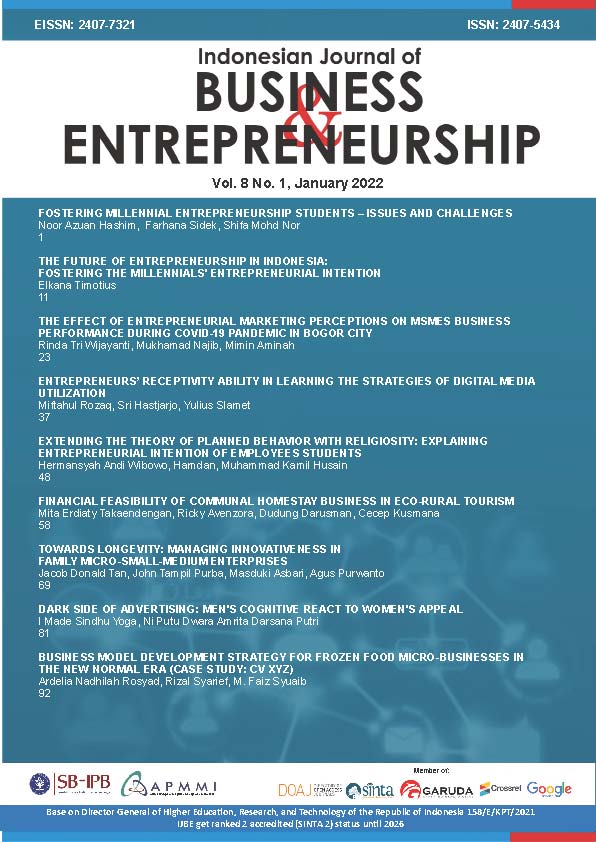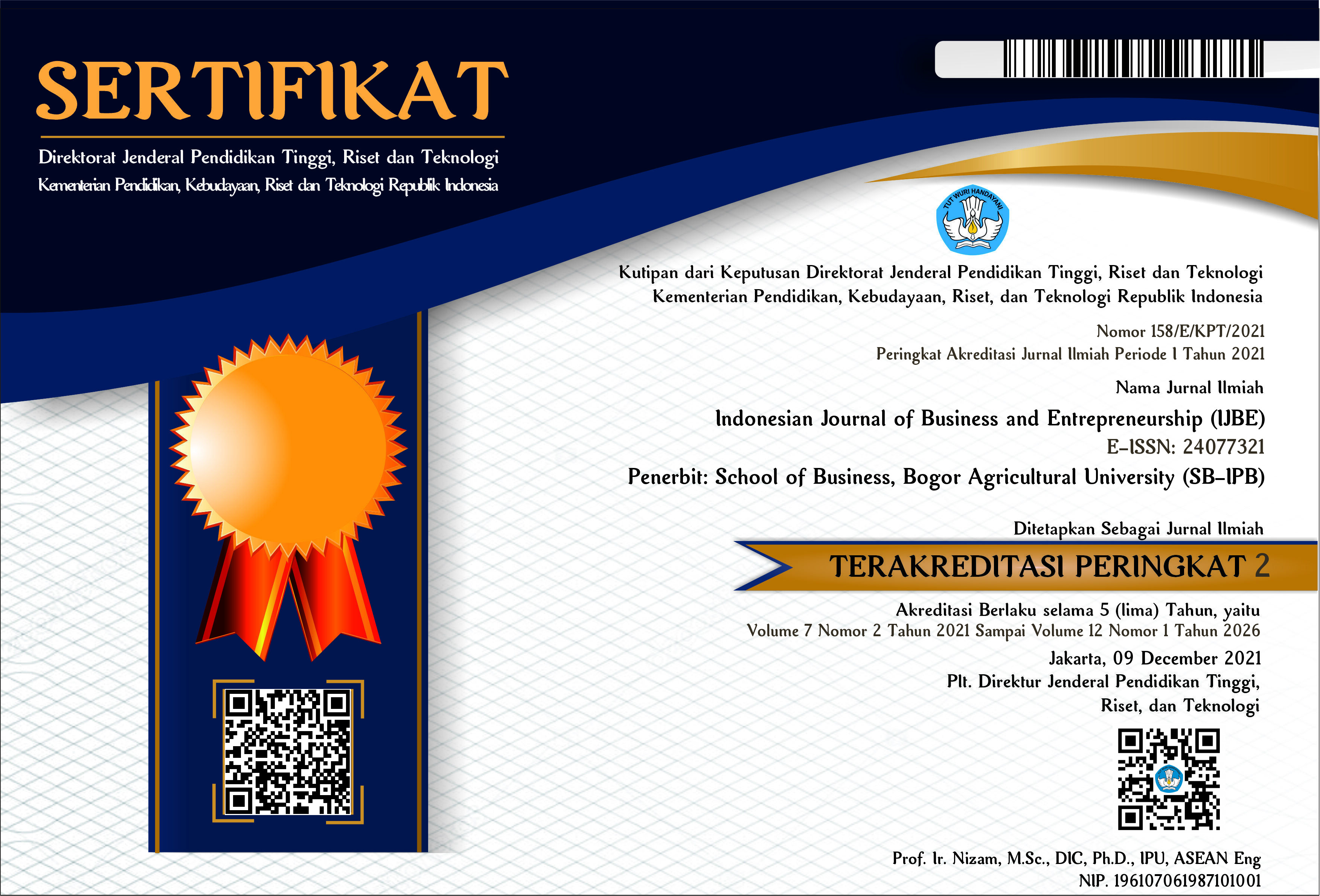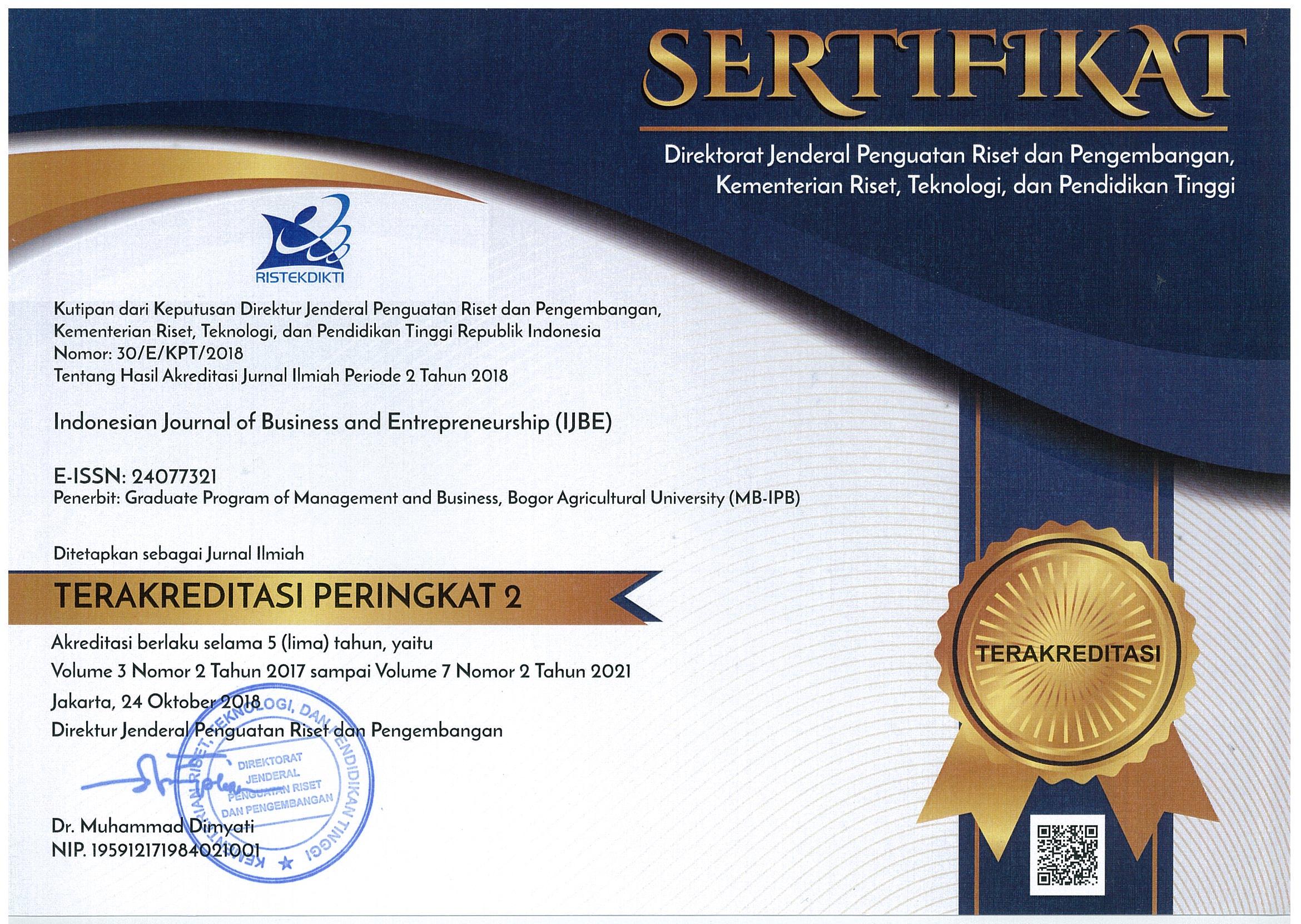Towards Longevity: Managing Innovativeness in Family Micro-Small-Medium Enterprises
Abstract
This article explains the family and business strategies that the Micro-Small-Medium Enterprises (MSMEs) implement to dodge the ability-willingness paradox. The majority of the MSMEs in the metropolitan region of Jakarta are in their comfort zone. Only 15.90% utilize the Internet and 8.53% utilize the computer. According to the researchers' survey, most family businesses highlighted business longevity and emphasized the importance of technology and information. However, family MSMEs are still trapped in the ability-willingness paradox despite recognizing the importance of innovation. This study sampled five family MSME cases that are considered sustainable due to their innovativeness. It then investigated them by in-depth semi-structured interviews, observations, and field notes to explore how they strategize to employ innovativeness. The results signify the founders’/incumbents’ receptiveness towards innovations in the business. It also signifies the stakeholders’ contributive insights and the imposition of operations systemization. These findings stipulate the fundamentals for families in their MSMEs to engage in innovative activities that influence the longevity of their firms. This study concludes by recommending avenues for future research.
Keywords: family business, micro-small-medium enterprises, innovativeness, strategy, case studies








